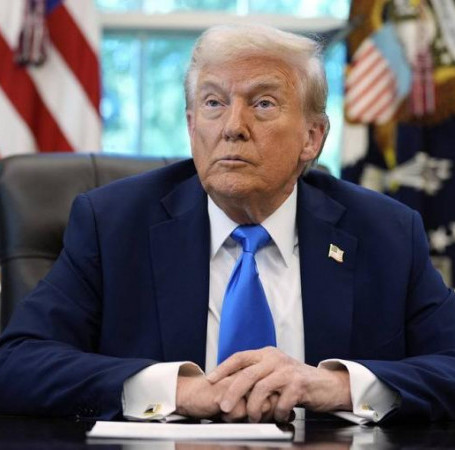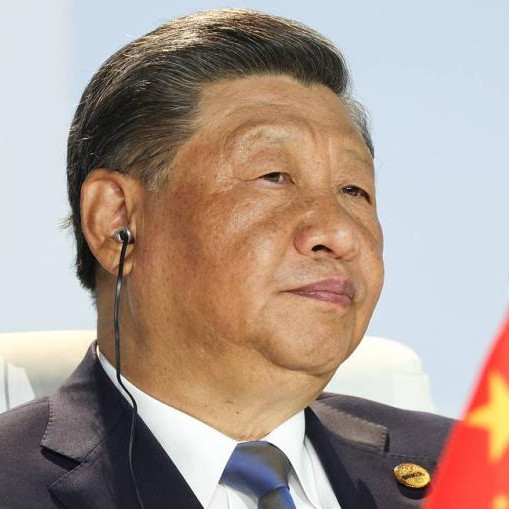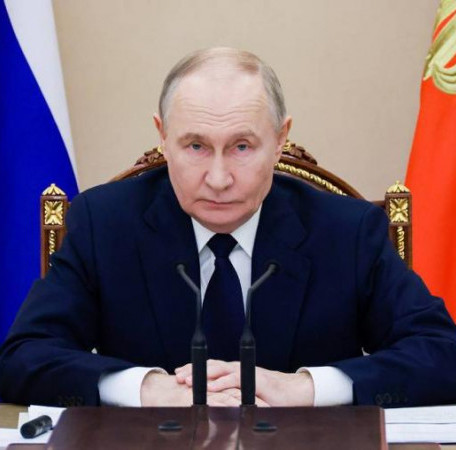On July 19, 2008, Barak Obama, the nominee of the Democratic party at the presidential election, started his 9-day trip to the countries of the Middle East and Western Europe.
American political observers point out that his trip, statements and representations to a great extent are preconditioned by the fact that the US presidential election campaign is entering in its final phase thereafter the candidates for the supreme executive port in the State should “distinctly and convincingly formulate their positions with respect to the Washington policy in the vital regions of the world”.
The first day of the trip was devoted to Afghanistan where Barak Obama had a meeting with President Khamid Karzai to discus development of the military and political situation in the country and support the request of the latter to increase the strength of the American troops. In case of his victory the American Democrat promised additionally deploy 7,000 troops in Afghanistan at the expense of the US contingent in Iraq.
Today morning, on July 21, Barack Obama came to Iraq after his two-day visit to Kuwait. At his talks with Iraqi Premier Al Maliki he urged Baghdad to sign bilateral strategic security cooperation agreements as soon as possible. In particular, these agreements are to regulate the further presence of the American troops in the territory of this country. Obama positively assessed the work of the Iraqi leadership in stabilization of the domestic situation and promised to start reduction of the American contingent already in early 2009.
This statement evoked immediate response of the American politicians and militaries. The Republicans and US Armed Forces top-brass believe that the radical decrease of the American troops in Iraq is premature, and may entail the loss of US influence in this Middle east country. Besides, a majority of experts came to a conclusion that the Obama-declared 16-month term cannot be considered feasible.
American and West European politicians assume that the statements of the candidate for the presidency to a great extent are propaganda steps referring to the fact that Washington got bogged down deep in the Iraqi sands. Many of them agree with the opinion of the militaries that the hasty strength reduction may look like a run from Iraq and may lead not only to a collapse of the international coalition but also to the loss of control over the situation in the region.
It is expected that tomorrow Barak Obama is arriving to Tel Aviv, one of key points of its Middle East trip. He will have to convince the Israeli leaders that in case of his victory he will maintain and strengthen the relations of strategic partnership with Tel Aviv and even pursue a more tough policy towards the states unfriendly to Israel.
Besides, Barak Obama will visit Jordan to have talks with King Abdullah and Head of the Palestine Administration Makhmud Abbas. Israeli Foreign Minister Tzipi Livni who will attend the talks said that she is interested to know the Obama’s stand with respect to the Palestine reconcilement in the light of maintained strategic interests of Israel in the region.
. Political observers have no doubts that the future of Barak Obama largely depends on the results of his talks with Israeli and Palestinian leaders. In this connection, a key item of the agenda is the stand of the nominee of the Democratic party at the US president election with respect to the Iranian nuclear problem.
On the eve of his trip the Democratic leader recognized the need to politically solve this complicated problem. Bert Rockman , Office. Head and Professor, Department of Political Science, Purdue University (USA), explained the Obama’s stand with respect to Iran as follows: “If the talks fail, it will result in a direct military intervention”.
It is noteworthy that currently only few American politicians speak in favor of the use of military force to compel Iran to abandon its national nuclear programme. Maybe, only actual Vice-President Dick Cheney and John McCain, the nominee of the Republican party at the US presidential election, most toughly insist on the forceful solution of the problem.
In general, the US establishment is inclined to support the position of militaries who quite reasonably assume that today the USA is involved in the war in two fronts: in Afghanistan and Iraq. In so doing, the militaries are not sure that the troops have fulfilled all tasks in these countries and are available to be involved in a protracted military campaign against Iran.
Antonia Bodnar, a Washington analyst, said that the Obama’s ME trip “is almost a presidential tour, a continuation of the election campaign”. According to her, “it is a response to the criticism of Republican nominee McCain who reproached Obama for lack of foreign political experience and knowledge of the situation in-situ in the disturbing regions. Obama went to gain the foreign political score.”
However not all experts are sure that all outcomes of the trip will be positive. Vin Weber, a Republican expert in political strategies, believes that in the environment of such careful attention of mass media and high stakes ”any minor misstep, insignificant error may lead to a result opposite to that, which was expected by the reckless player”.
American political observers point out that his trip, statements and representations to a great extent are preconditioned by the fact that the US presidential election campaign is entering in its final phase thereafter the candidates for the supreme executive port in the State should “distinctly and convincingly formulate their positions with respect to the Washington policy in the vital regions of the world”.
The first day of the trip was devoted to Afghanistan where Barak Obama had a meeting with President Khamid Karzai to discus development of the military and political situation in the country and support the request of the latter to increase the strength of the American troops. In case of his victory the American Democrat promised additionally deploy 7,000 troops in Afghanistan at the expense of the US contingent in Iraq.
Today morning, on July 21, Barack Obama came to Iraq after his two-day visit to Kuwait. At his talks with Iraqi Premier Al Maliki he urged Baghdad to sign bilateral strategic security cooperation agreements as soon as possible. In particular, these agreements are to regulate the further presence of the American troops in the territory of this country. Obama positively assessed the work of the Iraqi leadership in stabilization of the domestic situation and promised to start reduction of the American contingent already in early 2009.
This statement evoked immediate response of the American politicians and militaries. The Republicans and US Armed Forces top-brass believe that the radical decrease of the American troops in Iraq is premature, and may entail the loss of US influence in this Middle east country. Besides, a majority of experts came to a conclusion that the Obama-declared 16-month term cannot be considered feasible.
American and West European politicians assume that the statements of the candidate for the presidency to a great extent are propaganda steps referring to the fact that Washington got bogged down deep in the Iraqi sands. Many of them agree with the opinion of the militaries that the hasty strength reduction may look like a run from Iraq and may lead not only to a collapse of the international coalition but also to the loss of control over the situation in the region.
It is expected that tomorrow Barak Obama is arriving to Tel Aviv, one of key points of its Middle East trip. He will have to convince the Israeli leaders that in case of his victory he will maintain and strengthen the relations of strategic partnership with Tel Aviv and even pursue a more tough policy towards the states unfriendly to Israel.
Besides, Barak Obama will visit Jordan to have talks with King Abdullah and Head of the Palestine Administration Makhmud Abbas. Israeli Foreign Minister Tzipi Livni who will attend the talks said that she is interested to know the Obama’s stand with respect to the Palestine reconcilement in the light of maintained strategic interests of Israel in the region.
. Political observers have no doubts that the future of Barak Obama largely depends on the results of his talks with Israeli and Palestinian leaders. In this connection, a key item of the agenda is the stand of the nominee of the Democratic party at the US president election with respect to the Iranian nuclear problem.
On the eve of his trip the Democratic leader recognized the need to politically solve this complicated problem. Bert Rockman , Office. Head and Professor, Department of Political Science, Purdue University (USA), explained the Obama’s stand with respect to Iran as follows: “If the talks fail, it will result in a direct military intervention”.
It is noteworthy that currently only few American politicians speak in favor of the use of military force to compel Iran to abandon its national nuclear programme. Maybe, only actual Vice-President Dick Cheney and John McCain, the nominee of the Republican party at the US presidential election, most toughly insist on the forceful solution of the problem.
In general, the US establishment is inclined to support the position of militaries who quite reasonably assume that today the USA is involved in the war in two fronts: in Afghanistan and Iraq. In so doing, the militaries are not sure that the troops have fulfilled all tasks in these countries and are available to be involved in a protracted military campaign against Iran.
Antonia Bodnar, a Washington analyst, said that the Obama’s ME trip “is almost a presidential tour, a continuation of the election campaign”. According to her, “it is a response to the criticism of Republican nominee McCain who reproached Obama for lack of foreign political experience and knowledge of the situation in-situ in the disturbing regions. Obama went to gain the foreign political score.”
However not all experts are sure that all outcomes of the trip will be positive. Vin Weber, a Republican expert in political strategies, believes that in the environment of such careful attention of mass media and high stakes ”any minor misstep, insignificant error may lead to a result opposite to that, which was expected by the reckless player”.


